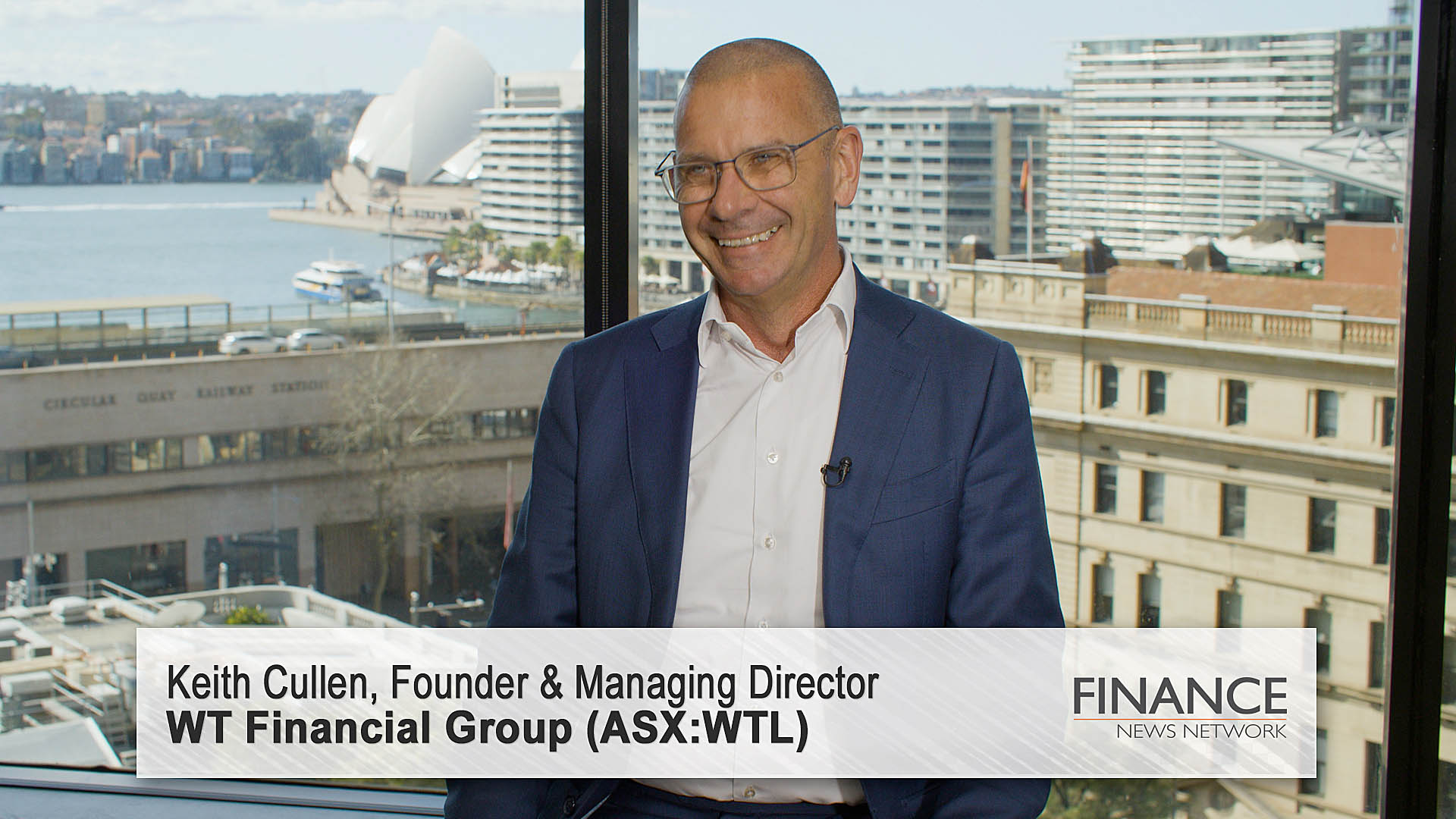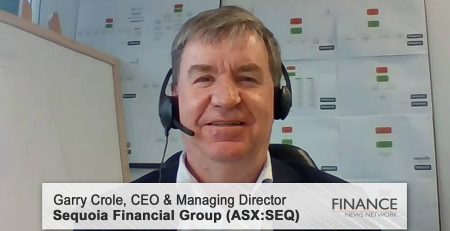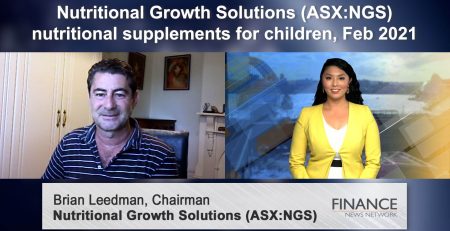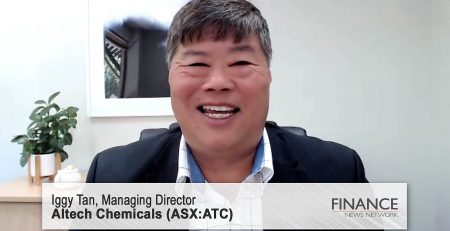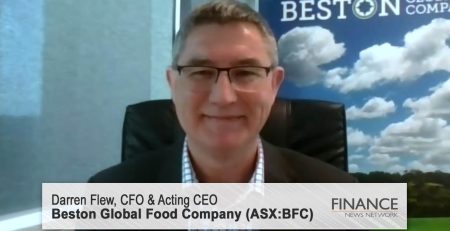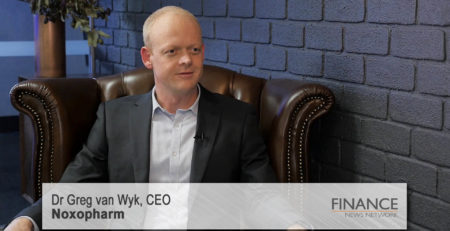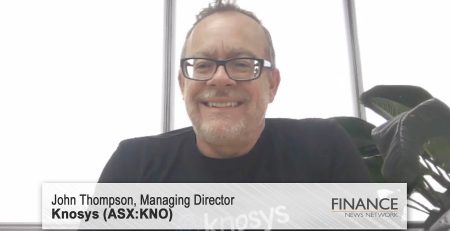WT Financial (ASX:WTL) rallies on indicative results
WT Financial Group Limited (ASX:WTL) Founder and Managing Director Keith Cullen discusses the company's indicative results and the future of financial advice.
Tim McGowen: We're talking to Mr Keith Cullen today, who's the Founder and Managing Director of WT Financial Group (ASX:WTL). The group is a financial services company that operates two distinctive channels. One is the business to business operation, which operates under brands like Wealth Today, Synchron and Sentry Group. The other is the business to consumer group, which operates under the Spring Digital brand. Keith, nice to see you. Thanks for your time.
Keith Cullen: Thanks, Tim. Good to be here.
Tim McGowen: This morning, Keith, you released your indicative numbers. They look very promising, but you're yet to release your full financial year statements for the year. Can you talk us through these indicative numbers and are they in line with expectations?
Keith Cullen: Yeah. Thanks, Tim. Of course I can. Well, we've come in with revenue of just short of a $104 million with an EBITDA line around 3.9 million, EBIT. So earnings before interest and tax of about 3.3 million. That comes down to an underlying net profit before tax of about 2.8 million. We'll have a one-off in there which was a debt restructuring cost of about 400 grand that'll bring the statutory net profit before tax down to 2.3, but this is a really great outcome, and it follows our completion of the acquisition of Synchron Group in March. So, the contribution from the Synchron acquisition is just three and a half months. And the revenue contribution from Synchron was some 35-odd million out of our 103 million. So you can see that augurs really well for this next year or the year that we're in now, when we'll have the benefit of a full year from that acquisition.
Tim McGowen: And when will you release your full year financial statements?
Keith Cullen: I think we'll be really late in the month. And the reason for that is, Tim, we've had two significant acquisitions during the year. So, getting the consolidated balance sheets together, getting all of the notes associated with those acquisitions together is really taking some time. It's why we wanted to come out with the indicatives to say, "Look, it's good news from a P&L perspective. Financial statements are coming. They'll be right towards the end of this month."
Tim McGowen: In regards to those acquisitions, you had Sentry in the beginning of the financial year, then you've had Synchron in the last quarter of the financial year. The company's had a lot to deal with in regards to integration. How's that progressing, and are they still operating as individual businesses?
Keith Cullen: No, they're not operating as individual businesses, Tim, and this is the real benefit of what we've done with these acquisitions. We've been able to consolidate them well and integrate them well. It wasn't without its challenges, with Covid putting travel restrictions on us, particularly with Sentry being Perth-based, but we've managed to work through it. And I'm very proud of the executive team and the job they've done in that regard. But really critically for our shareholders, but also for our advisors, being able to bring the businesses together and get the efficiencies of scale that come from doing that, it's great in terms of being highly accretive for the shareholders. It's very good for the advisors as well, because what we're able to do is amortise a lot of the operating costs across all three of the cohorts that we've got, Wealth Today, Sentry and Synchron, and really be able to bring up the level of service that we're able to provide to the advisors, which is very critical for them.
Tim McGowen: And obviously post these acquisitions, the numbers are great, will a dividend be announced in the short term?
Keith Cullen: I don't think we'll be looking at a dividend for this year, Tim. We've got some cash payments to make out associated with the upside payments for the Sentry acquisition, and we've got a similar sort of situation with Synchron arriving next year. But, certainly, if you have a look at the contribution that Synchron's made to these numbers coming in late in the piece in the financial year and extrapolate that out across this next financial year, we are looking forward to a return to dividends in the near future. There's a key point on that too, with our business, is that from a tax perspective is, we've got the benefit of some significant carry forward tax losses. So whilst we'll have a statutory tax position this year, we won't be paying any tax. Probably the same for next year as well, given how significant they are. But, at the same time, we're sitting on about $1.4, $1.5 million worth of franking credits. So, we won't need to be paying tax on a cash basis to be able to return to a franked dividend position in future periods.
Tim McGowen: And of course in the financial advice industry, you've had a number of advisors leaving the industry. Do you expect this trend to continue? And how will that affect WT Financial?
Keith Cullen: We're up against another deadline towards the end of September, which is for advisors that haven't sat their FASEA exam. So, there's likely to be a few more exit the industry over the next few months. There's certainly been a big exodus over the last couple of years. The reality of it for the advisors that remain, and I think for the businesses like ours that remain, is the demand for advice continues to increase. So, the consumer demand's there, the revenue's there. With less advisors, this means that advisors are actually charging more. They're generating more revenue dealing with less people. I think it's a structural issue for the government moving forward more than anything, Tim, is this exodus of advisors we've seen in so much as there needs to be a plan to start to attract young talent back into the industry so that the cost of advice for consumers doesn't keep escalating.
Tim McGowen: And you mentioned the government. We've obviously had a change in government during the financial year. How do you expect the government to react to changes in the industry?
Keith Cullen: Yeah, Stephen Jones is our new minister, and the very positive thing about that, Tim, is he was the shadow minister under the previous government. So, he knows the industry well, he knows the space well. He's come out and said he's very motivated to work with Michelle Levy, who's undertaking this quality of advice review that the former government put in place, to really look to cut red tape and cut the regulatory burden and the compliance burden on advisors to try and bring that cost of advice down. So, we are really enthusiastic about working with the new minister in that regard.
Tim McGowen: And there's a lot of pessimism around the financial advice industry. You've always been really optimistic. Can you tell us why?
Keith Cullen: Well, look, the demand for advice continues to grow. Consumers need advice. We're on the doorstep of the greatest intergenerational wealth transfer in history, with about $3.5 trillion set to pass from one generation to the next over the next five years or a decade. So, you've got the estate and legacy planning associated with that. You've got this massive cohort of people headed towards aged care, needing aged care advice. And then you've got the recipients of all of that intergenerational wealth transfer, needing assistance in getting themselves organised strategically and needing investment advice. And you've got superannuation just increasing all the time. So, the demand's there. And I think now we've got the right regulatory environment and attitude to start to make advice a bit easier to provide and drive those costs down. As I say, the one unanswered question is, what are we going to do about attracting new blood into the industry? But I think we've got a government very motivated to work with us in that regard.
Tim McGowen: And from a strategy perspective for WT Financial, are more acquisitions on the horizon?
Keith Cullen: Look, potentially. You'd never say no to that. I certainly don't think they're critical for us. We are now at the point from a scale perspective — I think behind Insignia, the former IOOF, and AMP we'd be the largest advice network in the country. So, we've certainly got the right level of scale to build organically and to attract more advisors. So really our strategy now is to really continue to bed down those acquisitions, deliver the profits and hopefully return to dividends for shareholders. But you'd never say never. There is definitely more opportunities in the marketplace for further consolidation.
Tim McGowen: And, Keith, looking ahead, financial year 2023, are you providing any guidance to the market?
Keith Cullen: We've provided guidance previously when we did the Synchron acquisition, Tim, and I think these numbers give us the confidence to reinforce that guidance now. And so that was for around $170 million in revenue and dropping down to a net profit before tax of about $5 million, which would equate on a statutory basis to about a $4 million net profit after tax. But, again, I'd reiterate that we won't actually be paying out tax on a cash basis for some time. So, that's what we think will position us to get back to that dividend position sooner rather than later.
Tim McGowen: Keith, always good to see you. Thanks for your time.
Keith Cullen: Really appreciate it, Tim. Thank you.
Ends
Copyright 2022 – Finance News Network
Source: Finance News Network

